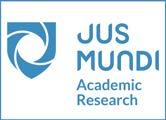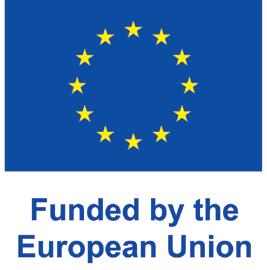INVESTMENT SUPPORT PROGRAMME FOR LEAST DEVELOPED COUNTRIES A PUBLIC PRIVATE PARTNERSHIP FOR SUSTAINABLE DEVELOPMENT
Launched in November 2019, the Investment Support Programme for Least Developed Countries (ISP/LDCs) was designed through cooperation between the International Development Law Organization (IDLO) and the United Nations Office of the High Representative for the Least Developed Countries, Landlocked Developing Countries and Small Island Developing States (UN-OHRLLS).
Funded through contributions from the European Union and the Kuwait Fund for Arab Economic Development, the Programme provides technical and legal assistance, as well as complementary capacity building, to LDCs governments and private sector entities on investment-related matters, including negotiations and dispute settlement. Assistance under ISP/LDCs is provided at no cost to the beneficiaries, by harnessing the expertise of lawyers and experts working on a pro bono or reduced fee basis. All assistance under the Programme is also demand-driven, provided upon request, and designed for quick response.
BENEFICIARIES
The Programme is designed to support beneficiaries from the LDCs and recently graduated LDCs designated by the United Nations General Assembly. The 46 LDCs can
benefit from responsible, sustainable, and well managed FDI to generate income, jobs, and technological upgrading to advance their economic growth and sustainable development.1 However, LDCs often lack the human or financial resources to participate effectively in investment-related negotiations and dispute settlement and to secure the most favourable outcomes for their people and economies.
Against this background, the Programme offers assistance to governmental entities and agencies, state-owned enterprises and eligible private sector entities, including under-resourced and/or small and mediumsized private sector entities within LDCs. Specific attention is dedicated to supporting businesses owned by women and individuals from marginalized and excluded groups and promoting their access to economic opportunities.
OVERVIEW OF THE PROGRAMME
The support provided by ISP/LDCs seeks to address capacity constraints that LDC governments and eligible state-owned or private sector entities may face in investment relationships with foreign counterparts. By doing so, the Programme supports LDC beneficiaries in deriving the maximum benefit from existing investment opportunities,
1
1 As of November 2021, the LDCs list includes: Afghanistan, Angola, Bangladesh, Benin, Bhutan, Burkina Faso, Burundi, Cambodia, Central African Republic, Chad, Comoros, Democratic Republic of the Congo, Djibouti, Eritrea, Ethiopia, The Gambia, Guinea, Guinea-Bissau, Haiti, Kiribati, Lao People’s Democratic Republic, Lesotho, Liberia, Madagascar, Malawi, Mali, Mauritania, Mozambique, Myanmar, Nepal, Niger, Rwanda, Sao Tome and Principe, Senegal, Sierra Leone, Solomon Islands, Somalia, South Sudan, Sudan, Timor-Leste, Togo, Tuvalu, Uganda, United Republic of Tanzania, Yemen and Zambia.
increase sustainable investment flows and promote greater economic diversification. ISP/LDCs is structured as a public-private partnership with two distinctive and innovative features.
• First, the Programme adopts an integrated approach to LDCs investment capacity development. ISP/LDCs delivers assistance on two complementary fronts. It pairs technical support on a wide range of investment-related matters – including negotiations and dispute settlements – with dedicated capacity-building activities, tailored to the situation and demand of each country.
THE GAMBIA
• Second, the Programme places the private sector front and centre of investment capacity development. The participation and commitment of the ISP/LDCs experts plays a critical part in the success of the Programme. Moreover, the private sector is not only the provider but also the recipient of capacity development, as ISP/LDCs also supports under-resourced small and medium enterprises in LDCs.
Below are some examples of assistance that IDLO has provided to beneficiaries under ISP/LDCs:
Technical Support on an Investor-State Arbitration. IDLO provided technical assistance to the Government of The Gambia in an investor-state arbitration in the oil and gas sector through the engagement of a quantum expert for the evaluation of the damage component of the arbitration. Thanks to the support provided by the quantum expert, The Gambia was able to solidify its defense and reach an out-of-court settlement with the foreign investor.
Support in the Design of a Model Bilateral Investment Treaty. IDLO provided technical assistance to the Ministry of Trade of the Government of The Gambia in the review of a draft of a Model Bilateral Investment Treaty (BIT), to ensure its alignment with sustainable development goals.
Complementary Capacity Building. In both cases, technical assistance was accompanied by the provision of capacity building support on international investment law and arbitration and investment contract negotiation.
ETHIOPIA
Capacity Building for the Retention and Management of Foreign Direct Investment. IDLO provided capacity building support to government officials from the Ethiopian Investment Commission, the Ministry of Foreign Affairs, and the Ministry of Trade on international investment law and arbitration, with a view to strengthen their ability to design legal and policy frameworks on international investments fully aligned to sustainable development.
MALAWI
Technical Support on Sustainable Agricultural Investment Contracts. IDLO provided technical assistance to a state-owned enterprise in Malawi in the preparation of a Model Joint Venture Agreement, to facilitate the negotiations with foreign investors in the agricultural sector.
2
UGANDA
Capacity Building Support to Private Sector Lawyers on the Implementation of FDI Transactions. In cooperation with the Uganda Law Society, IDLO provided capacity building support to private sector lawyers focused on the implementation of FDI transactions. Notably, IDLO delivered two training courses to a total of 230 private sector representatives from Ugandan law firms and industries’ associations, focused specifically on project finance law and Mergers & Acquisition Law.
ENGAGEMENT WITH THE PRIVATE SECTOR











To provide its assistance under ISP/LDCs, IDLO relies on the expertise of lawyers and experts in the investment field. IDLO has assembled a roster of experts who collaborate with the Programme and provide services on a pro bono or reduced fee basis. The roster includes members drawn from law firms, professional associations, universities, research centres and non-governmental organizations, among others.







PARTNERS


Roster experts provide quality professional advice on issues under consideration, as well as information and analysis, to help beneficiaries assess options, define priorities and strategies, and weigh the trade-offs that may be involved when policy goals conflict.





3
RATIONALE OF THE PROGRAMME
The commitment of the 2030 Agenda for Sustainable Development to “leaving no one behind” applies most emphatically to LDCs. The instrumental role of foreign direct investment (FDI) for the realization of the Sustainable Development Goals for the LDCs is expressly recognized in SDGs 10, which stresses the importance of encouraging FDI to LDCs in accordance with their national plans.
Yet, the low rate of accessibility to FDI for LDCs represents a great cause of concern. FDI flows to LDCs have been on a declining trend since 2015, representing only 1.4% global FDI in 2019. COVID-19 accelerated such decline. Indeed, while global FDI flows in 2021 have shown a stronger than expected rebound momentum, this positive development has not extended to LDCs, where FDI continues to decline precipitously, prejudicing recovery.
It is only by promoting and strengthening fair, balanced and effective legal and contractual frameworks grounded in the rule of law that LDCs can unlock to attract and manage FDI for sustainable recovery and development. ISP/ LDCs contributes to the realization of these objectives through the provision of legal and expert assistance to help requesting LDC governments and private firms to increase sustainable FDI and maximize the benefits they derive from it.
By putting private expertise at the service of LDCs, the Programme can bridge the capacity differential separating its beneficiaries and
foreign investors and reduce the risks that LDCs are engaged in unbalanced investment contracts that are liable to renegotiation, in international investment agreements that do not consider national sustainable development objectives, or in cost-intensive investment dispute resolution proceedings.

The importance of ISP/LDCs in the achievement of these objectives has been acknowledged in the Doha Programme of Action for LDCs, which specifically acknowledges the role of the Programme in enhancing LDCs’ access to FDI and other private sources of capital for development.
ABOUT IDLO
ISP/LDCs is implemented by IDLO. IDLO is the only global intergovernmental organization exclusively devoted to promoting the rule of law to advance peace and sustainable development. IDLO works to enable governments and empower people to reform laws and strengthen institutions to promote peace, justice, sustainable development and economic opportunity. With experience working in more than 90 countries around the world, IDLO provides programmatic support on commercial and economic law, helping stakeholders to address the capacity constraints that they face when negotiating trade and investment terms and solving commercial disputes with foreign counterparts.
IDLO has a well-established track record in assisting and working in LDCs, building relations of trust with their governments and institutions in support of nationally defined development objectives. As part of a program portfolio that covers countries in all regions at different stages of development, many LDCs have already benefitted from IDLO’s assistance and/or participated in its training programs. IDLO’s intergovernmental status, its decade-long experience in supporting justice institutions in developing countries, and its standing vis-à-vis the international legal community, uniquely positions the organization to deliver the services envisaged under the Programme to the benefit of LDCs.
4
©IDLO/StreetOnCamara
Copyright © 2022, International Development Law Organization (IDLO).
All rights reserved.
CONTACTS
For further information on the Programme, please contact: Ms. Alessandra Mistura
Program Coordinator, Inclusive Economic Development Tel. +39 06 40403349
E-mail: idlo-isp @idlo.int Web: www.idlo.int/Investment-Support-Programme-LDCs

 Photo Credit: ©IDLO/Sebastian
Photo Credit: ©IDLO/Sebastian



























